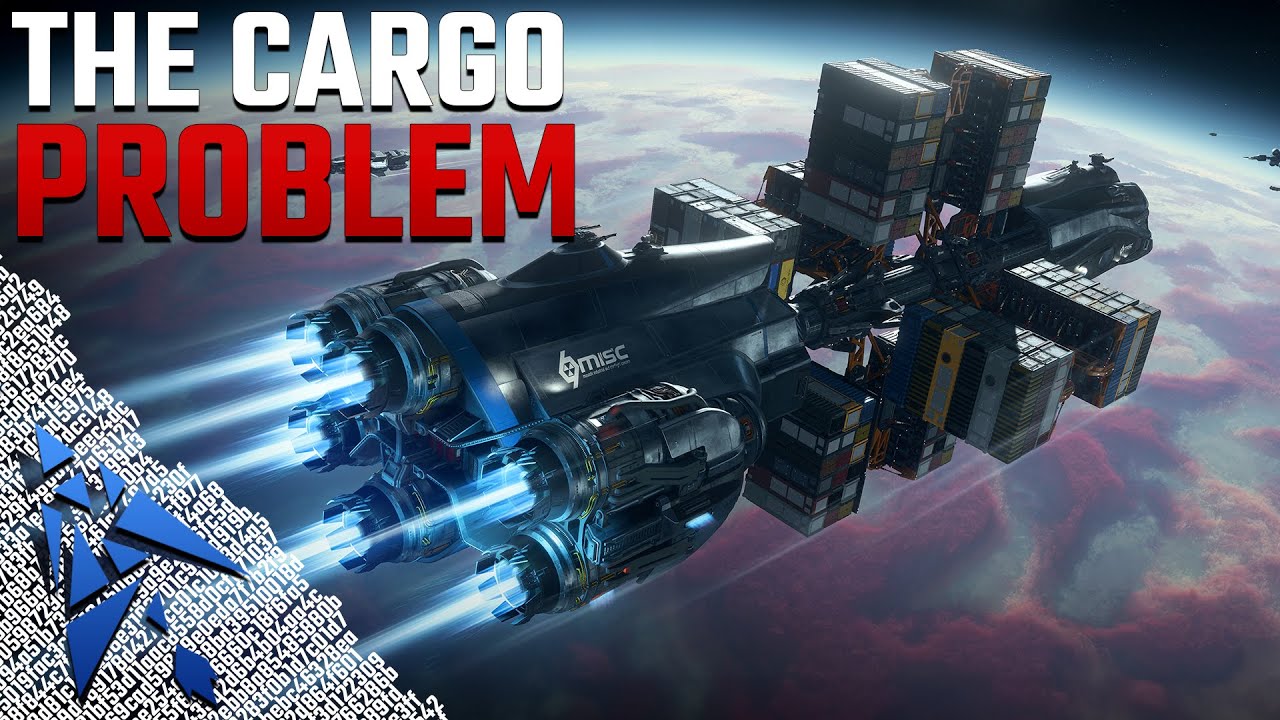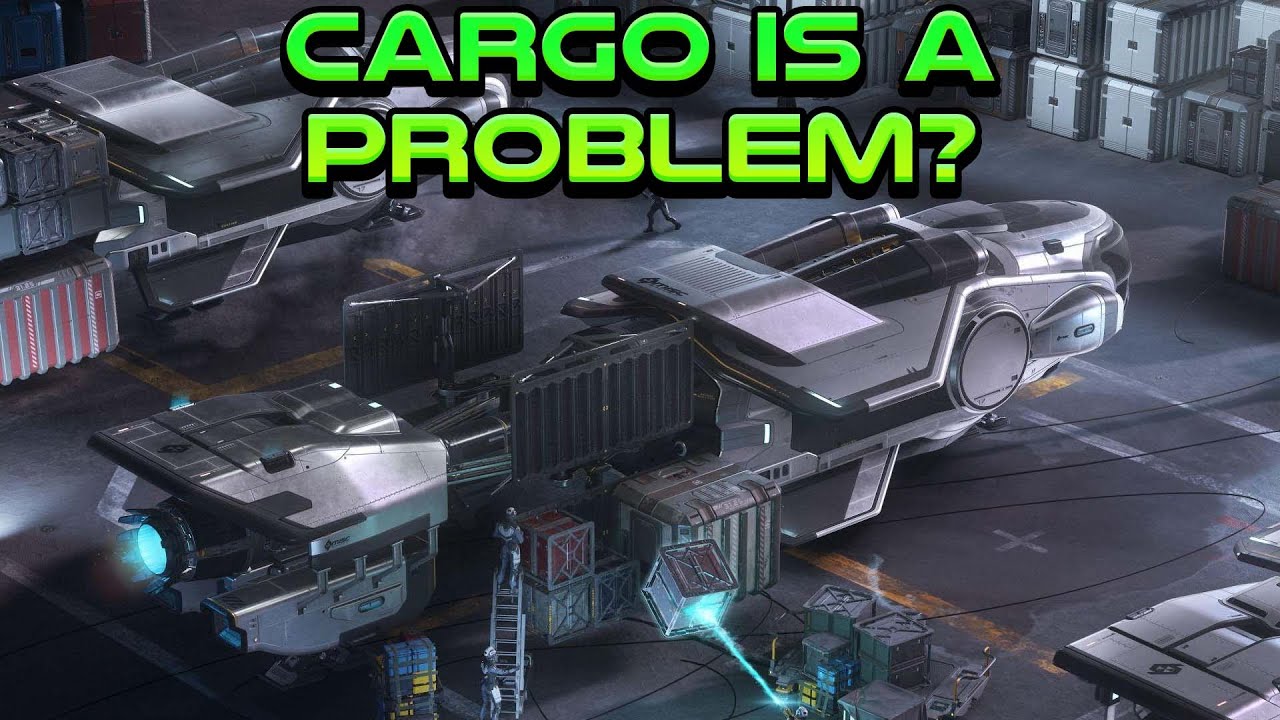The video discusses the current state of cargo trading and hauling in Star Citizen, highlighting the lack of fully implemented features for hauling and the combination of trading and hauling professions. The speaker suggests potential solutions, such as introducing hauling contracts, cargo decks on orbital stations, and improvements to trading mechanics, to address the issues and enhance the gameplay experience.
In this video, the speaker discusses the current state of cargo trading and hauling in Star Citizen. They explain that while the game has delivery missions, the actual hauling profession involving cargo is not fully implemented yet. However, there are upcoming features, such as the ability to attach various items to a cargo grid, which will be useful for transporting vehicles or non-standard cargo. The speaker also mentions the introduction of cargo elevators, which will allow players to transfer items from their inventory into the physical universe, and believes that these elevators are a prerequisite for enabling hauling missions.
The video then moves on to trading, which involves researching and scouting trade locations, tracking supply and demand, and trading the appropriate goods to make a profit. However, the current state of trading in Star Citizen is considered basic, as it combines both trading and hauling into one profession. This has upset both traders and haulers, as it limits their specialization. Additionally, there are issues with locations having insufficient or excessive goods, as well as low profit margins, which makes it difficult for small traders to compete and discourages engagement.
The speaker discusses potential solutions to these problems, such as restricting certain commodities and locations based on factors like access, reputation, and volume. They also mention upcoming cargo refactor features, such as cargo loading timers and manual loading, which will limit the volume of cargo a single crew can transport within a given time frame. However, these improvements will not completely separate traders and haulers. The speaker suggests the ability to create hauling contracts that can be taken by other players or NPCs, but acknowledges the risk of cargo loss and the need for insurance features to mitigate this risk.
Finally, the speaker proposes utilizing cargo decks on orbital stations to offload and load cargo from long-range haulers to smaller ships for transportation to nearby locations. They suggest decoupling the need to trade commodities at landing zones from the physical location of the cargo, allowing players to offload their cargo at a cargo deck and then use a smaller ship or automated shuttle to trade at the landing zone. This would decrease risk and save time. They also mention the potential for traders to request goods to be transported between orbital stations, creating massive hauling contracts and providing interesting content for haulers. The speaker concludes by mentioning the potential for updates and improvements to hauling and trading in the future, particularly in 2024.
salt-e-mike reacts:
This video by The Space Coder explores the cargo problem in Star Citizen, discussing the challenges faced by players in the cargo hauling gameplay loop. The speaker suggests solutions such as including more diverse items for hauling, creating hauling contracts for other players or NPCs, and updating the dynamic economy to make the profession more engaging.
This video discusses the “cargo problem” in Star Citizen, focusing on the issues with trading and hauling in the game. It highlights the need for improvements such as creating hauling contracts, decoupling trading from the physical location of cargo, and increasing the diversity of commodities and commodity stocks.
In this video, the content creator discusses the “cargo problem” in Star Citizen, specifically focusing on trading and cargo hauling. They explain that the game aims to have a dynamic economy driven by player and NPC actions, with cargo being the main driving force behind price changes and the state of the economy. The video explores the two main professions centered around cargo: trading and hauling.
The content creator raises concerns about the current state of hauling, stating that it doesn’t truly exist yet and that delivery missions, which are considered hauling contracts, are not sufficient. They discuss the need for cargo missions to involve more than just commodities, including items like weapons, armor, and even ships. They also mention the potential for smuggling missions, which could add an exciting element to the gameplay.
The video delves into the issues with trading, particularly the lack of diversity and engagement. They suggest that locations should have varied commodities and commodity stocks, creating a more diverse trading experience. They also mention the need for improvements to the cargo decks, which were introduced but haven’t been fully utilized yet. The content creator proposes decoupling the need to trade commodities at landing zones from the physical location of the cargo, allowing players to offload cargo at cargo decks and then use smaller ships or automated shuttles to sell or buy at the landing zone.
The content creator explores the idea of creating hauling contracts for players and NPCs, collecting goods from one station to another, and creating interesting content for haulers. They acknowledge that these improvements are still far away and that short-term updates to hauling and trading can be expected. They also mention the lack of recent updates regarding the dynamic economy and highlight the importance of increasing the diversity of commodities and commodity stocks across locations.
In conclusion, the video discusses the cargo problem in Star Citizen, focusing on trading and hauling. It highlights the need for improvements in both professions, including the ability to create hauling contracts and decoupling trading from the physical location of cargo. The content creator emphasizes the importance of increasing diversity in commodities and commodity stocks and mentions that updates to hauling and trading are expected in the short term.

